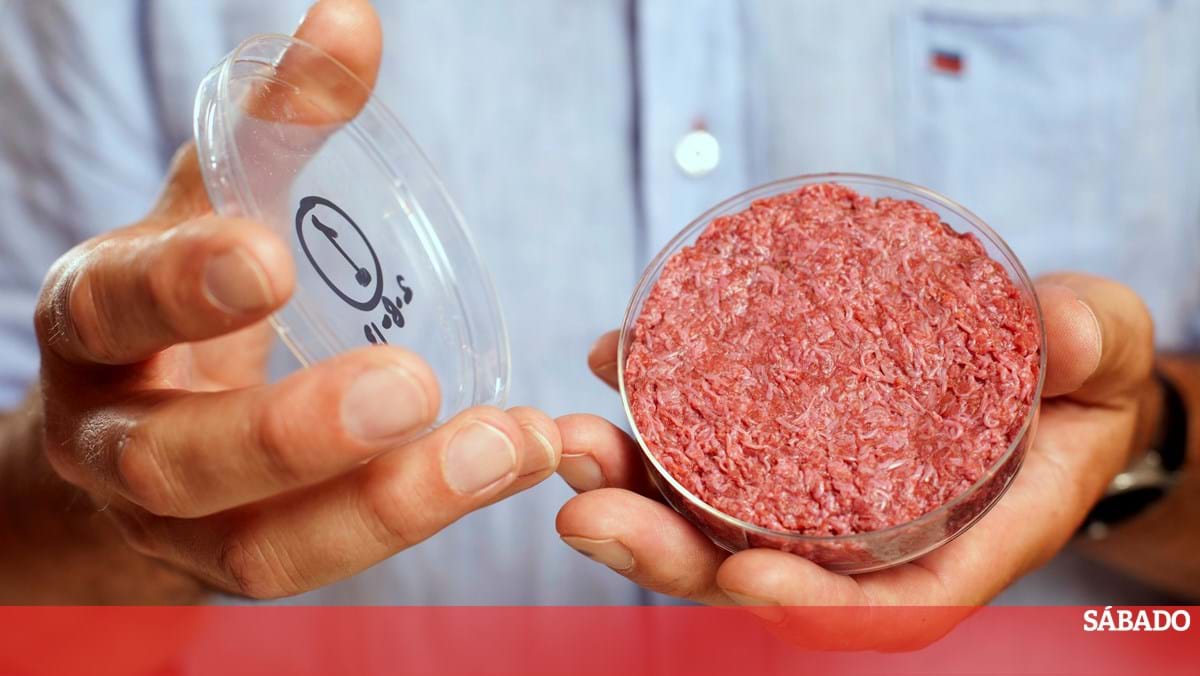South Korean researchers have created beef cells in rice grains, which they say is an important step towards a sustainable, accessible and environmentally friendly source of protein. They also believe it could replace cultured beef in the future.
In recent years, the production of this type of meat has been studied in many laboratories around the world, including… Portugal. These investigations appear as a promising alternative to conventional agriculture, offering more sustainable solutions to challenges faced by the food industry, such as natural resource scarcity, environmental footprint and animal welfare. Despite these advantages,Can laboratory-grown meat replace traditional meat?
The number of investigations that currently exist shows that this is “a topic that has been on the table for many years,” José Teixeira, a professor at the University of Minho, tells Saturday. “There's a media perspective and questions about product improvement, and it's one thing to make a particular food, but it's another thing to do it in an industrial sense,” he highlights, adding that we're still very early on. Substitution, especially with regard to improving the product for large-scale production and consumer acceptance.
Technological challenges
Large-scale meat production in the laboratory will still face many challenges. “Technologically, there are conditions that must be controlled to ensure certain properties, if our goal is to make meat as we know it,” the professor adds.
In order to ensure that the final product has the desired characteristics, such as flavour, texture and even nutrition similar to traditional meat, it is necessary to “formulate the culture media, create the conditions for cell production, for a method of producing meat”, explains José Teixeira. “There are still regulatory issues.”
actually Miguel Regosaid the nutritionist who specializes in community nutrition and public health Saturday Large-scale production is not sustainable due to lack of laboratories and high costs. “There is no production capacity, factories have to be built, and production costs are still very high,” he explains. He believes that “production in the traditional way pays off economically,” adding that financial incentives are still necessary to promote the development of the industry.
“Cultured meat” is produced by harvesting “specific animal or fungal cells.” They are later 'fed', in the laboratory, with nutrients to promote growth in bioreactors – where biological reactions take place. This process seeks to transform cells into a product with similar properties Found in conventional meats.
Environmental and monetary impact
In the search for more sustainable solutions, in vitro meat production is emerging as an alternative. Currently, the main problem in livestock farming is deforestation. About 80% of them Elimination of Forests In the Amazon, it is caused by the animal industry.
“With a decrease in livestock farming, a decrease in greenhouse gas emissions and the preservation of natural resources, including biodiversity, are expected,” says Miguel Rigo. “It is necessary to develop the technology used to produce meat in laboratories in order to move production to a more controlled environment, and I hope this does not lead to ultra-processed foods,” he warns.
José Teixeira also believes that “these solutions, such as microalgae cultivation and laboratory meat production, could offer a variety of alternatives for food production.” “I would say that the global distribution of food resources could be more secure in the future, because these solutions do not depend on seasonal factors.”
The widespread adoption of laboratory meat production may also face social challenges. Animal industries and large companies may show resistance, because they will be the most economically affected by these alternatives.
Consumer acceptance
As far as the agricultural industry is concerned, large-scale laboratory meat production could have a significant impact. “If in vitro meat becomes a viable alternative, it will certainly have repercussions on food production,” highlights José Teixeira, adding that he does not think we will rely solely on in vitro meat, “it is another alternative,” because “foods extracted from laboratories “Nowadays it depends on the consumer.”
Introducing lab-grown meat into society can pose significant challenges, especially in terms of consumer acceptance.
“Introducing something that is not considered natural can raise suspicions on the part of consumers, especially in the case of Portuguese consumers, who prefer fresh and organic products,” says the nutritionist. “This initial resistance can lead to limited adhesion to the product, making it a market Status Or choice beloved For some of the most curious consumers.”
This type of meat production does not cause suffering to the animals, as they are not slaughtered, which is why nutritionists understand that it can lead to an increase in laboratory meat consumption. “The characteristics between the meats are practically the same, which makes the risks associated with them similar,” Miguel Rigo points out. For a nutritionist, this means that in any case you should consume less meat. “We can continue to consume meat, but we should also eat more vegetables and legumes.”
José Teixeira highlights the importance of dealing with this shift sensibly, considering that “people who are more skeptical, and older people, are more closed to these solutions, while young people tend to be more open.” In this sense, it is important to gradually educate people and provide accurate information about this new method of meat production. “I would say we need common sense in these matters. We cannot talk about a large group of consumers. We have to move little by little.”

“Wannabe internet buff. Future teen idol. Hardcore zombie guru. Gamer. Avid creator. Entrepreneur. Bacon ninja.”

